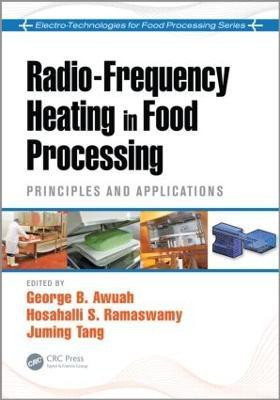Radio-Frequency Heating in Food Processing(English, Hardcover, unknown)
Quick Overview
Product Price Comparison
Radio-Frequency Heating in Food Processing: Principles and Applications covers the fundamentals of radio-frequency (RF) heating and the use of RF-heating technologies in modern food processing, preservation, and related industries. Focusing on industrial and lab-scale applications where RF heating has been employed successfully or reported to have potential benefits over conventional heating options, this state-of-the-art reference: Explains the similarities, differences, advantages, and limitations of RF and microwave heating as applied to agricultural products Describes fiber-optics temperature sensors and their utility in monitoring temperature during RF and microwave heating Discusses the dielectric and thermo-physical properties of agricultural products amenable to RF and microwave heating, presenting measurement techniques, mathematical concepts, and computer simulation models Provides practical perspectives on industrial RF units used in manufacturing food products, addressing free-running oscillators and 50-? designs for RF heaters and applicators Uses finite-element formulations to determine design parameters including resonant modes, circuit impedance, and electric field distribution in RF applicators Examines RF-heating effects on microorganisms, enzymes, and food quality attributes for products such as poultry, beef, pork, eggs, fish, milk, fruits, vegetables, and seafood Explores RF-heating applications beyond food processing, such as agricultural product deinfestation, waste treatment, counterfeit prevention, package tracking, and transportation of food from farm to table Radio-Frequency Heating in Food Processing: Principles and Applications supplies an in-depth overview of the fundamental science and engineering principles governing RF applications, as well as a solid understanding of industrial RF unit design options, challenges, and opportunities for development.


